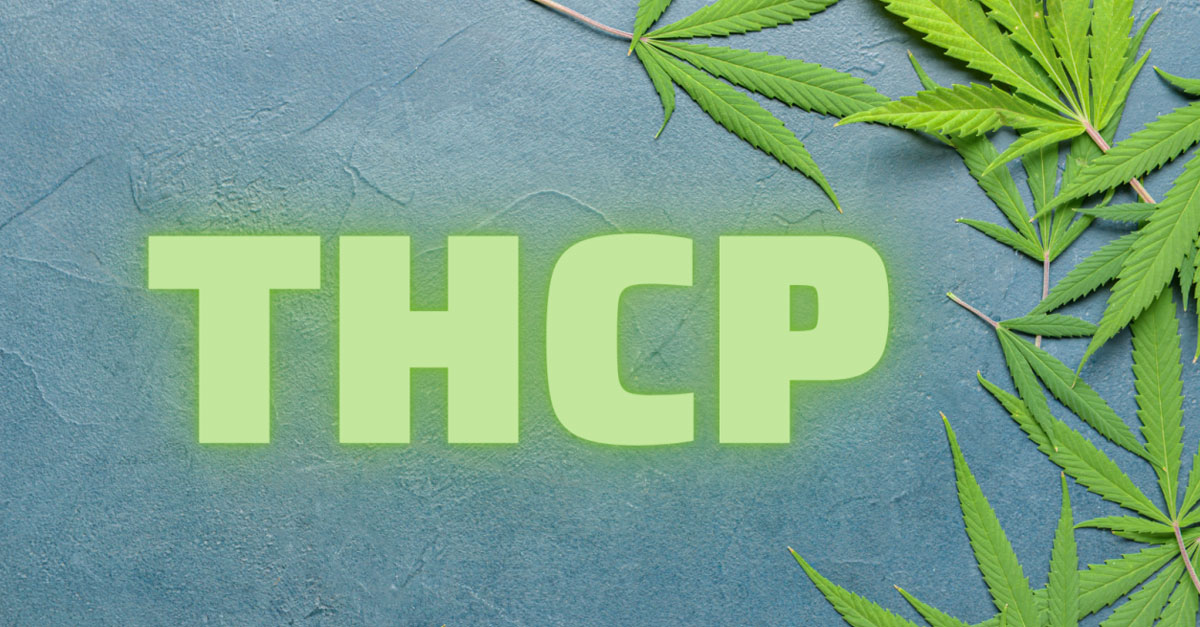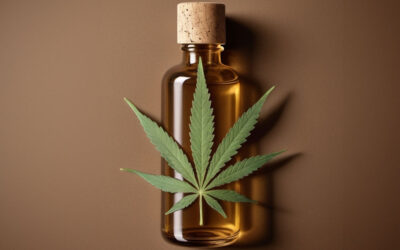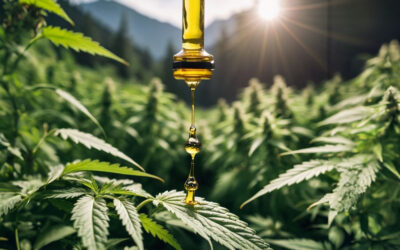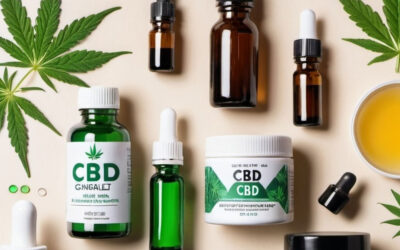THCP: 30 Times Stronger Than THC?

Cannabis industry experts are now focusing on THCP as one of the most fascinating discoveries in the industry. But what is it?
You may have noticed that some cannabis dispensaries and CBD shops have begun to add gummies and vape pens containing THCP to their menus. THCP (tetrahydrocannabiphorol) is a natural cannabinoid and analog of THC found in some varieties of cannabis strains. Researchers claim that it’s 33 times more active than THC (Delta 9), which causes an intense and intoxicating high. And in comparison to delta 8 THC, it is approximately 60 times stronger!
So how was THCP discovered? What is it exactly? And what is the current legality of this newly emerging cannabinoid? In this week’s article, we take a look at the science, chemical structure, processing, and legal status of THCP.
THE SCIENCE
THCP came as a surprise to everyone—including the researchers who discovered it. Mass spectrometry and liquid chromatography were used by Italian researchers in 2019 to analyze a sample of natural cannabis (FM2) provided by the Military Chemical Institute in Florence. The methods enabled them to analyze the plant matter more precisely. This process led to the unexpected discovery of THCP.
The work of these Italian researchers gave us the most accurate information we have on (-)-Trans-Δ9-tetrahydrocannabiphorol (THC-P). The 2019 study was officially published in a Scientific Reports journal titled: A novel phytocannabinoid isolated from Cannabis sativa L. with an in vivo cannabimimetic activity higher than Δ9-tetrahydrocannabinol: Δ9-Tetrahydrocannabiphorol.
The study introduced the world to THC-P. And obviously, it has sparked some serious interest from cannabis users and merchants.
HOW IS THCP STRONGER THAN THC?
Because of the Italian 2019 study, we know the chemical structure of TCHP. While we aren’t chemists (and neither are the majority of our readers), we still thought it important to learn the basics of TCP’s makeup.
Cannabinoid molecules all have alkyl side chains. The alkyl side chains indicate how the cannabinoid interacts with the endocannabinoid system (ECS). In other words, cannabinoid receptors.
For a cannabinoid to have some effect on your cannabinoid receptor 1 (CB1), the alkyl side chain must contain at least three carbon atoms. And the primary reason you get high from THC consumption is that it has five carbon atoms.
But THCP has seven!
As with THC, THCP also works as a CB1 agonist, which means it makes you high when the receptor is stimulated enough. The Italian researchers found that their naturally-sourced THCP was thirty times more effective at binding with human CB1 receptors. Since THCP has a higher affinity for CB1 receptors in the brain, we can also conclude that it is 30 percent more potent than THC.
Yet a 2021 study published in the Journal of Natural Products found, “The preliminary results obtained indicate Δ9-THCP may have a higher degree of prevalence in C. Sativa inflorescence than previously estimated.” This suggests that THCP may be stronger than THC (Delta 9) by more than 30%. While we need more research to determine the exact amount, even 30% is a bit astonishing.
HOW THCP IS MADE
The 2019 Scientific Reports study also showed scientists and manufacturers how to process and make THCP.
While THCP is one of the cannabis plant’s 140 naturally-occurring phytocannabinoids, it is only produced in small concentrations. Cannabis plants contain less than 0.1% THCP naturally. To put that into perspective, marijuana can have concentrations of THC of up to 30%, and hemp can contain concentrations of around 0.3%.
Chromatography methods, however, can be used to separate THCP from other cannabinoids in hemp and marijuana. The CBGA in cannabis interacts with enzymes in other acidic molecules to form tetrahydrocannabiphorolic acid (THCPA), which is a precursor of THCP. The same way that THC comes from THCA and CBD comes from CBDA. Decarboxylation (heating to change the chemical structure) is then used to activate THCPA and turn it into THCP.
LEGALITY OF THCP
With THCP being more potent than THC, it’s not likely to remain legal in non-recreational use states. However, with the growing acceptance of marijuana and ever-changing laws, there are many factors to consider when it comes to new cannabinoids.
The legality of THCP is conflicted by federal legislation. Delta 9 THC is the only cannabinoid that is illegal under the International Convention on Psychotropic Substances. THCP exists in the same legal gray area as delta-8 THC and delta-10 THC. However, since there is no mention of this substance as a controlled substance in the 2018 Farm Bill, it is possibly protected under it.
Tetrahydrocannabinols are specifically addressed in section 12619b of the Farm Bill. This section of the bill considers products containing natural THC with less than 3% Delta-9-THC to be hemp products. It is believed that THCP is protected under the Act (2018 Farm Bill) since it naturally occurs in hemp and carries up to 0.3% THC.
Despite this, many people believe that THCP is illegal and should be classified as an analog under the Federal Analogue Act (FAA). Although THCP is not listed as a controlled substance under the Controlled Substances Act (CSA), it is still an analog of THC. By default, all analogs of THC are prohibited under the Federal Analogue Act (FAA) unless they are specifically exempted.
As of now, there are no state bills mentioning THCP, but it is wise to assume that it is illegal in states that ban all forms of THC.
SAFETY OF THCP
Like any new drug, a new cannabinoid raises safety concerns. The long-term and short-term side effects are not well studied yet. So it makes sense that THCP products should be purchased and used with caution. Always ensure anything you purchases is from a trusted vendor who conducts third-party testing. And of course, proceed with care.
We’d love to hear any comments or experiences regarding THCP from our readers. Have you heard about or tried this new cannabinoid? What are your thoughts?
*The statements made within this article have not been evaluated by the Food and Drug Administration. These statements and the products discussed are not intended to diagnose, treat, cure or prevent any disease.
Latest GreenCore News
CBGA: The Mother of All Cannabinoids
CBGA: The Mother of All Cannabinoids CBGA, often called the "mother of all cannabinoids," is gaining significant attention. This foundational cannabinoid is showing promise in reducing seizures and treating conditions like insomnia and chronic pain. Recently, its...
Cannabis Concentrate Spotlight: Rick Simpson Oil
Cannabis Concentrate Spotlight: Rick Simpson Oil Rick Simpson Oil has become a cornerstone in the world of cannabis products. Renowned for its versatility, this concentrate offers a multitude of benefits for both medical patients and recreational users.In this blog,...
CBD 101: Properties, Production, and Potential
CBD 101: Properties, Production, and Potential CBD has rapidly evolved from a little-known compound to a household term. But while it has become a ubiquitous term, many remain unclear on what cannabidiol actually is. In this blog, Green Core Specialty Insurance...
Contact Us
Office Location
1600 Golf Road, Suite 1200
Rolling Meadows, IL 60008
Office Hours
M-F: 8am - 6pm
Phone
847-201-4600



